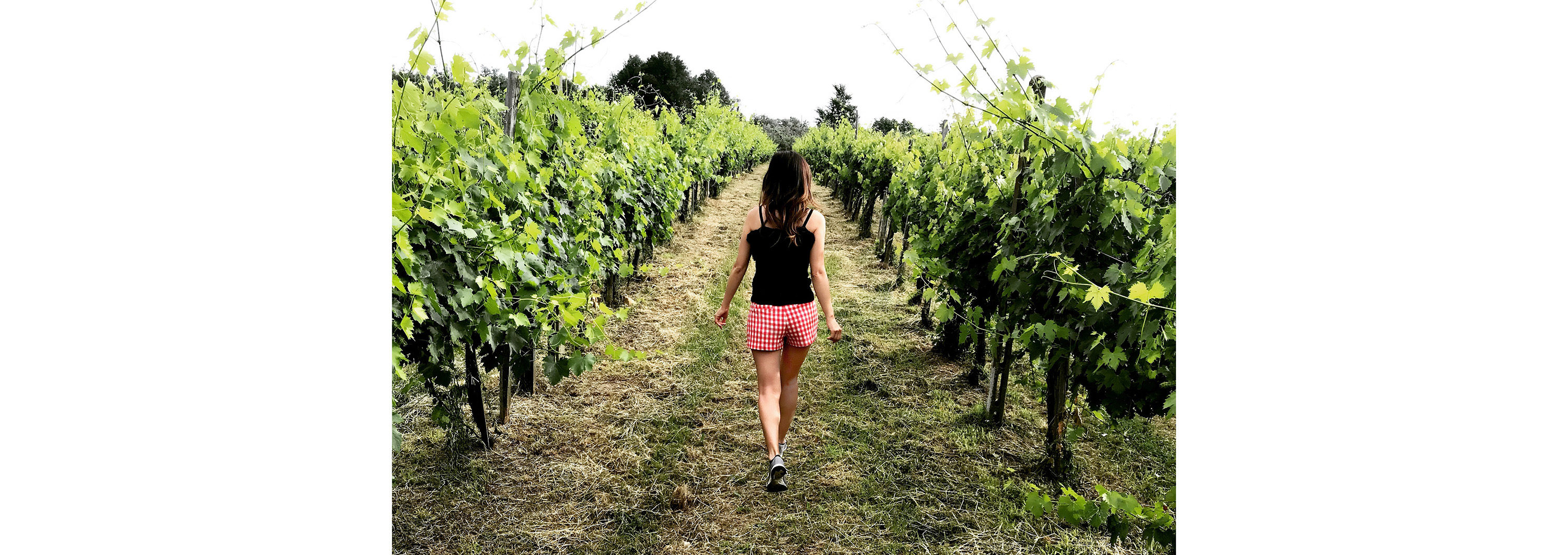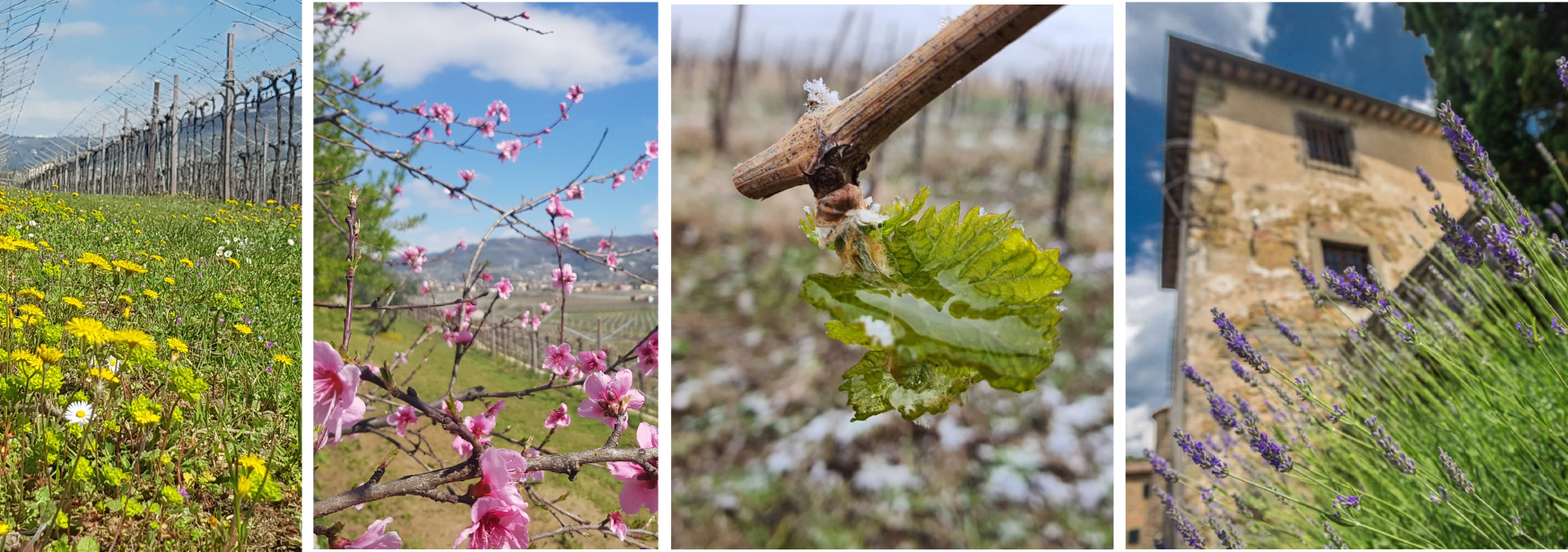“Agriculture is the most magical example we have of nature’s strong resilience,” says Cristiana Tiberio of Agricola Tiberio. Words like this from Italy during a time that she describes to be the “most challenging period after the Second World War” due to the COVID-19 pandemic is a refreshing reminder that life does go on.
Situated in Abruzzo, approximately twenty miles inland from the seaside city of Pescara near the hillside town of Cugnoli, Tiberio and her family produce Montepulciano d’Abruzzo, Cersauolo d’Abruzo, Pecorino, and Trebbiano Abruzzese. Tiberio’s Trebbiano Abruzzese vines are especially noteworthy as they are amongst the oldest in Abruzzo, distinct and relatively rare. The Tiberios tend their vineyards with absolute care.
Over the past weeks, as the aging wines have been “resting” and regularly monitored in the winery, outside, Tiberio’s team has also been finishing up the pruning of some of their cordon-trained plots. Spring is evident with warmer weather boosting bud break in their Pecorino vines.
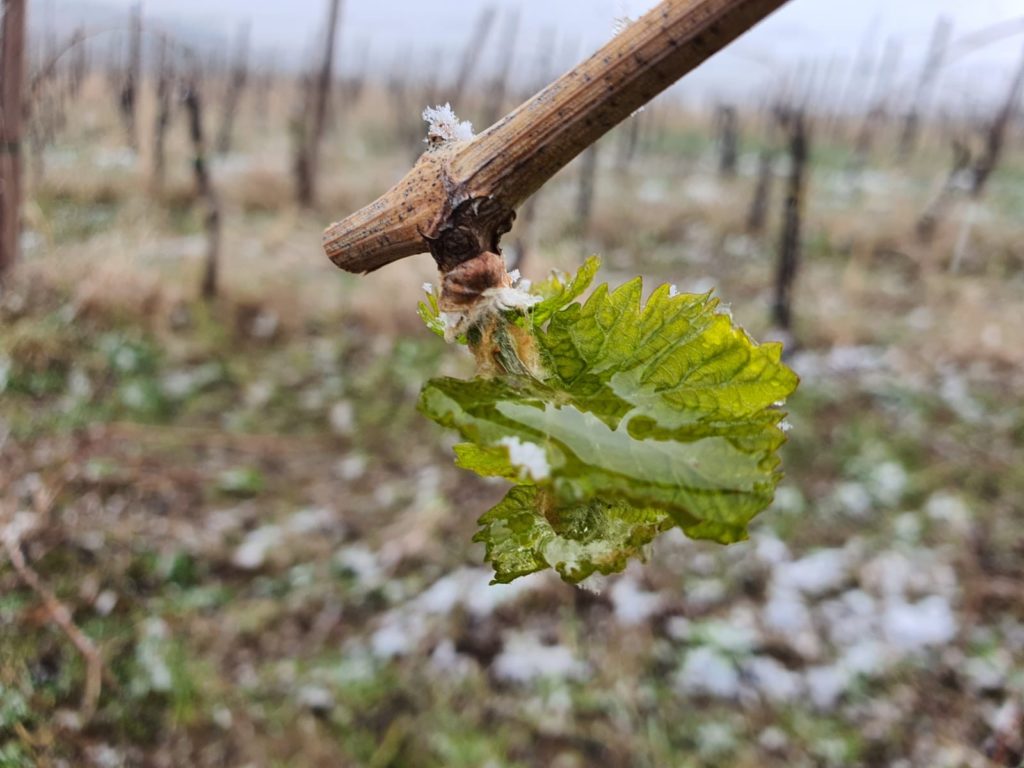
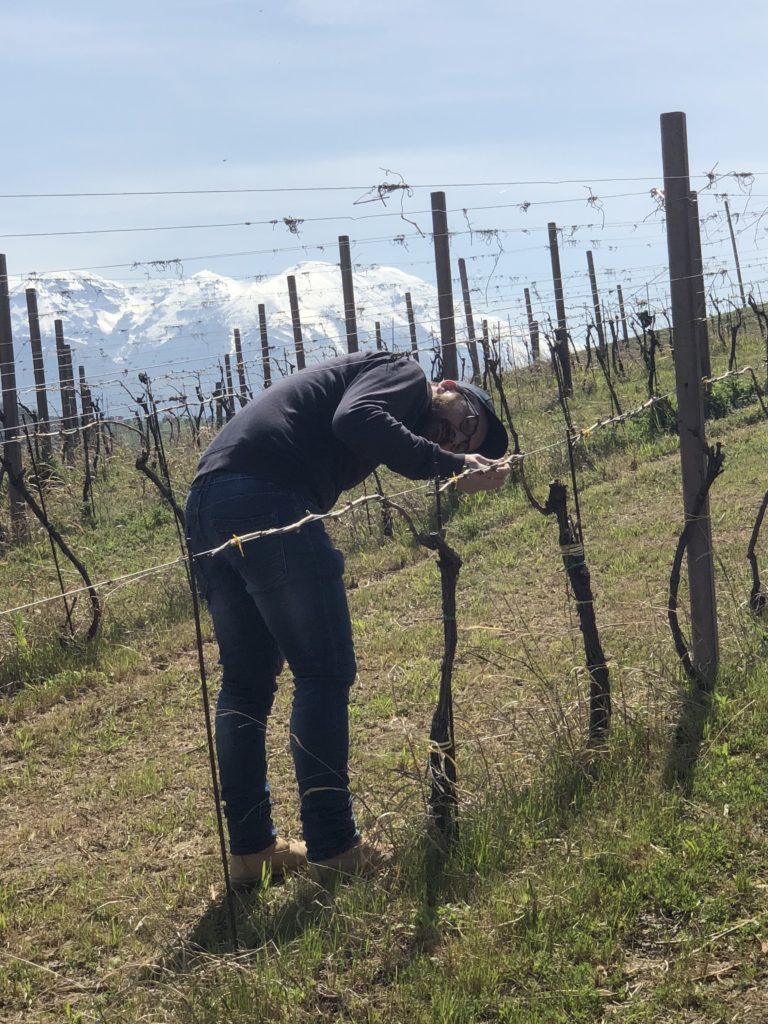
“In the Trebbiano Abruzzese and Montepulciano [vineyards] there is activity because the vines are starting to ‘cry’. It means the roots are waking up and starting to pump up the sap flow but the buds are still to appear,” she explains.
“Annual vineyard work needs to be done,” she says. “By living in the country in open-air spaces, and maintaining social distancing, wineries can continue working by having people work separately in single plots very far away from the risk of reciprocal contamination.”
Yet, the reality for producers like Tiberio is the unexpected halt in business due to the lockdown of importers, distributors, retailers, restaurants, and hospitality industry throughout the world.
“Of course the wine sales are slowing down, which is a big problem for a small family-run, artisan, independent winery like us,” she says. But, Tiberio has been able to retain all their employees. “It’s important to our family values to protect those who work with us at the estate as much as possible.”
In Valpolicella, Luca Speri of the historic Speri Viticoltori tends to share the same sentiments of hope, integrity and persistence. “We work with our own vineyard only (60 hectares) that we manage directly,” Speri says. “Nature has a rhythm that can’t be stopped and we need to follow it – of course, following all the safety measures.”
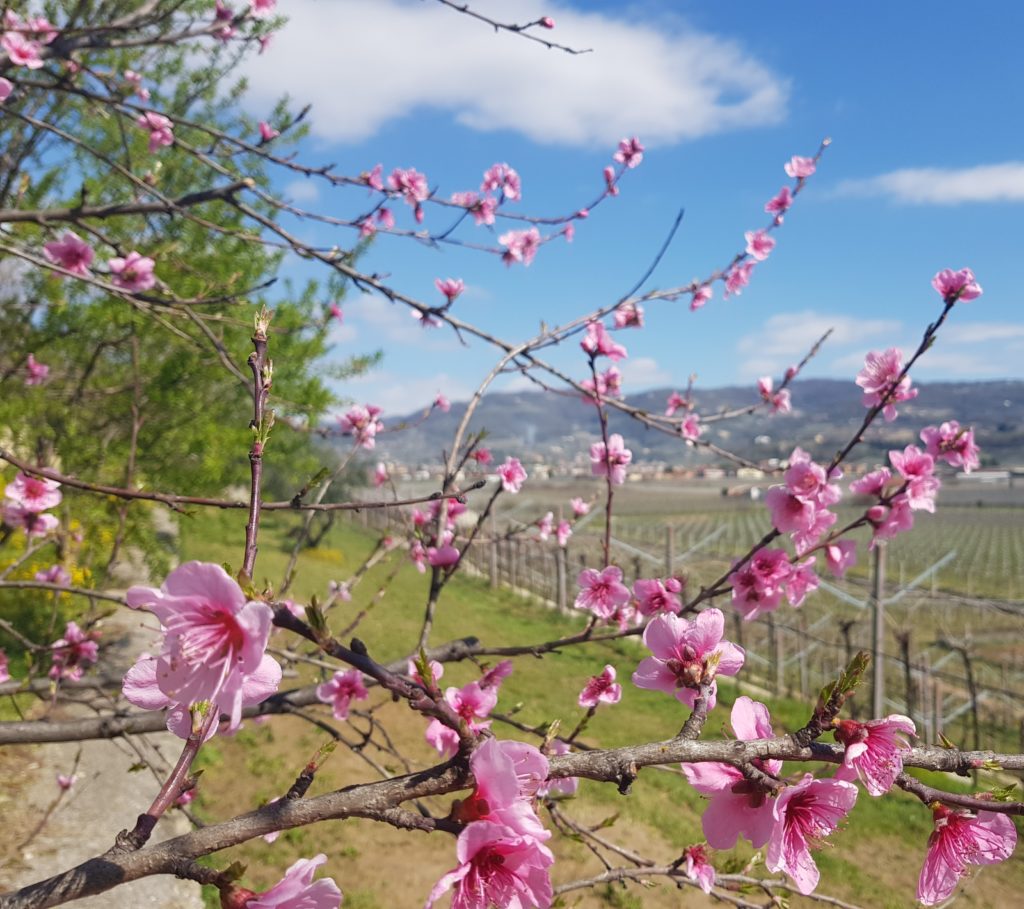
Speri exclusively cultivates native grapes of the Valpolicella zone (Corvina, Rondinella and Molinara) to produce five types of classic DOC and DOCG wines: Valpolicella Classico, Valpolicella Ripasso Classico Superiore, Valpolicella Superiore and Amarone from the Sant’Urbano vineyard and a Recioto della Valpolicella Classico from the La Roggia vineyard.
Just having has finished their winter pruning, they are now anticipating budding in the coming warmer days. They are also shipping orders that have been booked previous to the lockdown, but he doesn’t anticipate many orders for a while.
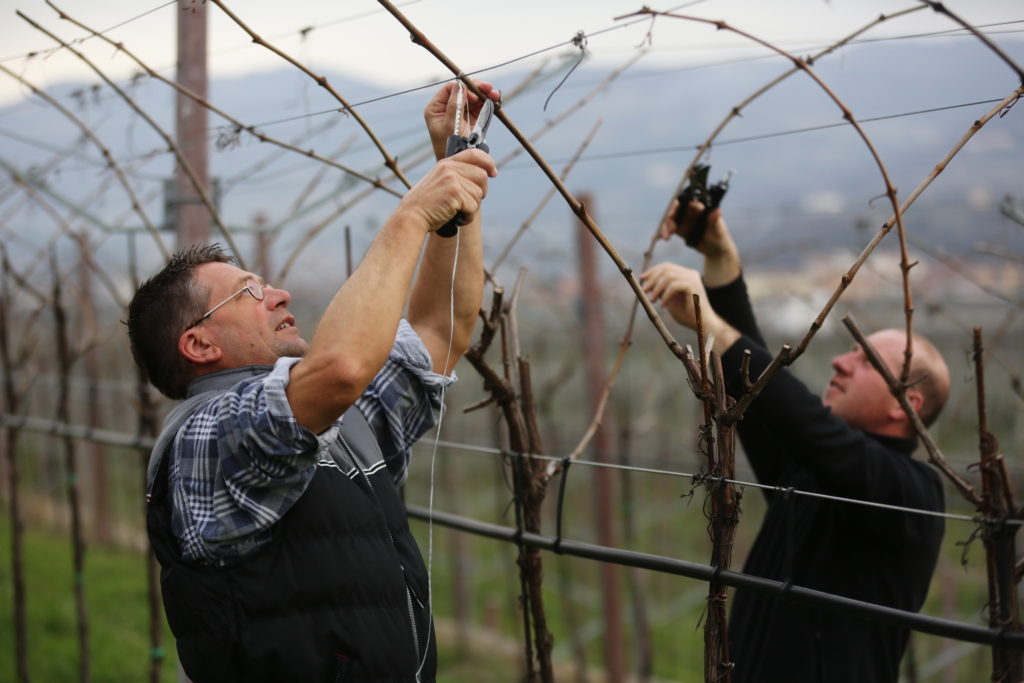
“Our business worldwide is about 95% fine dining/hotels, and this is the category that is closed or limited in all the countries affected by the virus.” However, Speri also says that they starting to receive orders from their importers in Korea, Singapore, Japan, and China.
“Talking with them seems that they are reopening and life is slowly re-starting. You can imagine that this is a ray of light for us…seeing that somebody is coming back to normality. After all, this makes us believe that it will be gone soon,” says Speri.
Of course, he is still worried about the world’s health and of the world’s economy. But they are ready to adapt and invest in restoring their industry.
“As in all the crisis you will see also here the ones that have the strongest roots and the best ideas for the future,” he says. “We will invest with the partners that will show more energy and ideas. The way we sell will be probably quite the same as we deal with importers worldwide…I think that what will change will be the way importers and distributors sell the wines. We will figure it with them but for sure the on-line market will have a boost.”
Federica Mascheroni Stianti of the acclaimed Chianti Classico estate, Volpaia, says, “Agriculture is one of the things that can’t be stopped. Luckily vineyards are big and people can work with a lot of space between one another, as you know Vitamin D is very important and you can get a lot of sun :)”
Castello di Volpaia is a historic hilltop hamlet in Tuscany where winemaking and hospitality date back to the 12th century. With accommodations, tasting rooms, restaurants, and guest activities, she admits that times are difficult at the moment, with a slow-down in Italian tourism and wine sales.
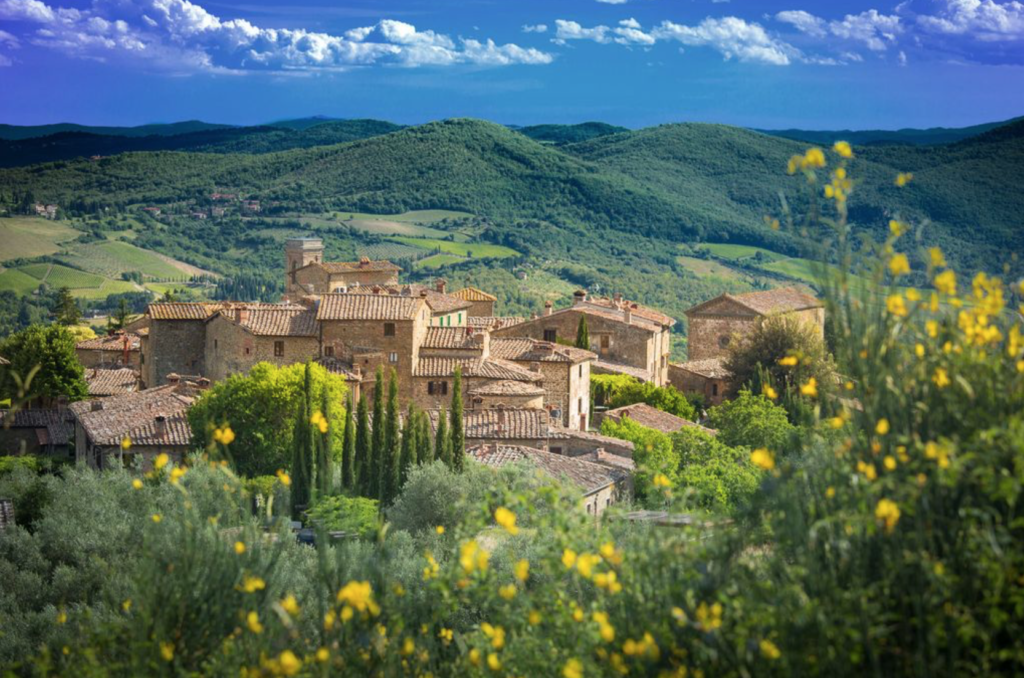
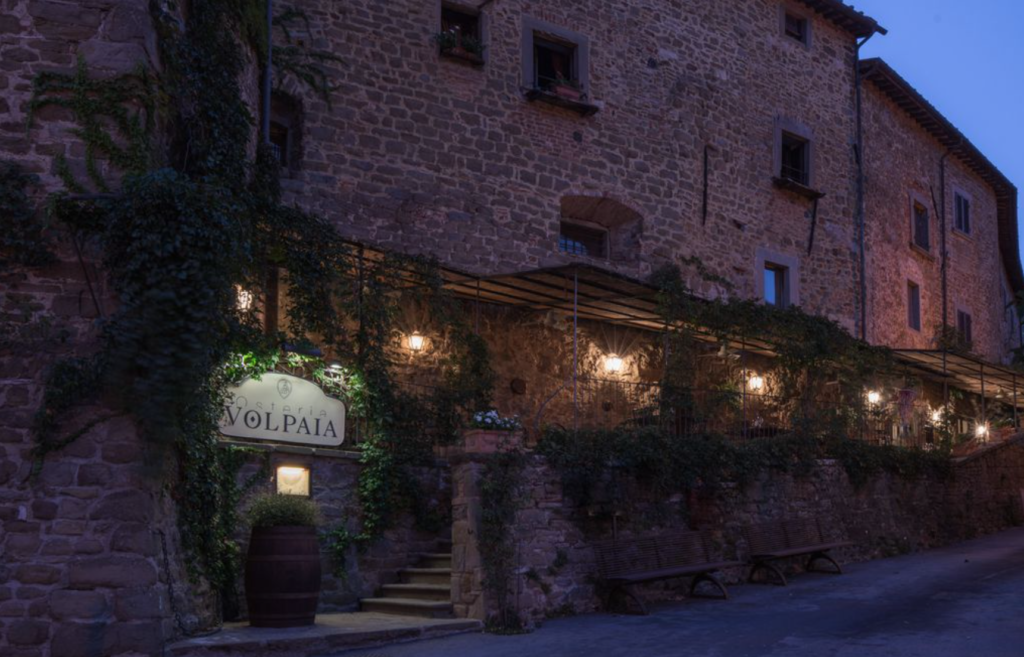
“We are all connected,” says Mascheroni Stianti. “For sure the wine is connected to restaurants, hotels and tourism and all of this is now totally stopped. But, we are trying to improve and give service on-line and reach our consumers.”
A sense of belonging to a community that spans locally, nationally and globally, is a common thread in the attitudes of wine producers. They are discovering that in many respects, its the best solution to helping them emerge gracefully from the effects of the pandemic.
“Italy is having a very heavy time, but in the wine and restaurant community, there is a deep sense of responsibility,” says Tiberio. “We know the only way out of this situation depends on our behavior.”
She continues, “Our focus is to guarantee the quality and the health of products and workers and to be able to ship the wines, respecting the regular channel of distribution, involving restaurants, wine shops, restaurants, importers, in order to respect each and everyone’s business and capability to survive.”
Luca Speri says, “We are a family winery and we have a very good (and often very long) relationships with all our importers…not just business but real friendships in a lot of cases.”
I can only say that is going to be a historical moment that will be written in the books. It is like a war against an invisible enemy,” says Mascheroni Stianti. “But, we will stand again and be even more shiny than before. We are Italian.”
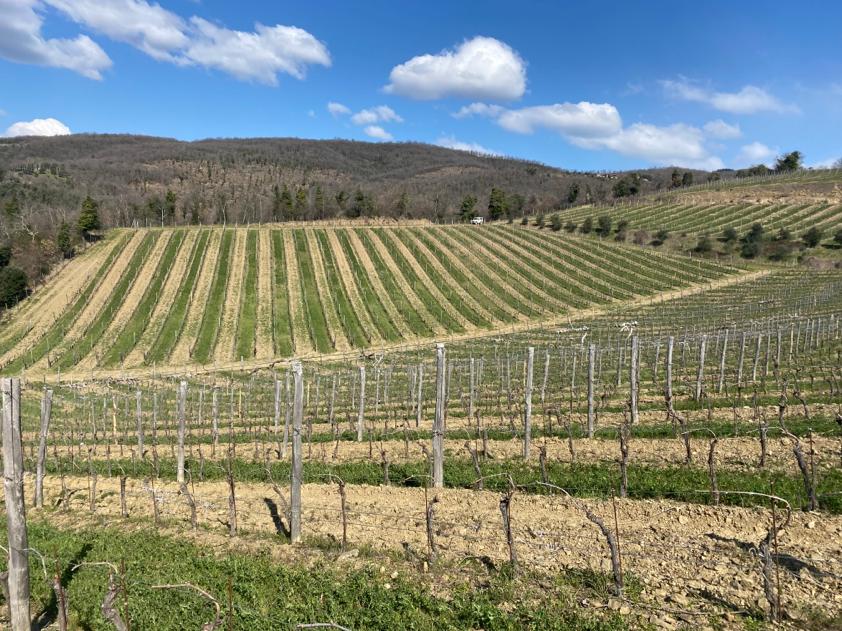
Meanwhile, each day the “vines continue to grow the birds continue to fly, the bees are buzzing around, foxes are out and about, the rabbits scamper. Nature, the soil, the environment is breathing and waking up after winter time,” says Tiberio.
Italy has lived in the inertia of having evolved and survived for thousands of years. Its unwavering strength is innately built into their DNA. It is in their culture, in their vineyards, and in their people.
